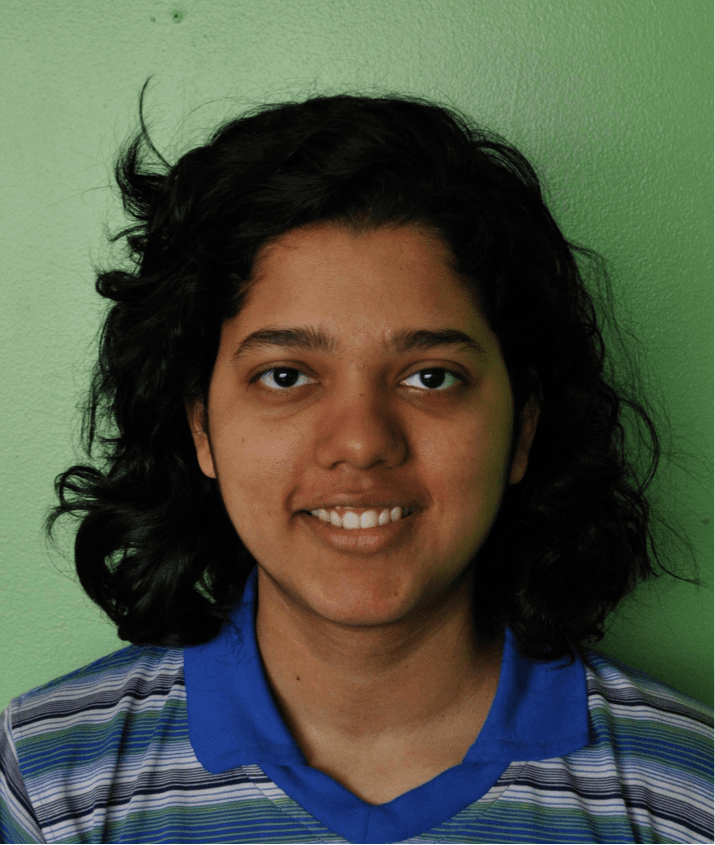Alumni Interview with Dr. Monica Akula
Author: Shawna Lee Thompson

We tracked down recent graduate Dr. Monica Akula and found out what she’s been up to since she left McMaster. From experimental design and retinal disease to advice on committees and applying for jobs post-defense, Monica has valuable advice for students at all stages of their graduate studies!
What is your current position? Can you give us a brief description of things you might do on a daily basis as part of your job?
I’m currently a postdoctoral fellow at Massachusetts Eye and Ear Infirmary under Dr. Neena Haider’s mentorship, and our lab focuses on developing therapies for retinal disease. On a daily basis, I plan and conduct in vivo, ex vivo, and molecular experiments using various genetically modified mouse strains. More specifically, this usually involves a combination of assessing the effect of gene therapies on retinal structure and function in mouse models of ocular disease, including techniques like electroretinography and fundus imaging, as well as analyzing histological staining of post-mortem mouse tissue samples. I also prepare mouse DNA samples for sequencing and analyze the data to identify mutations in these mouse models. In addition, I help draft manuscripts for papers and present at symposia and conferences.
What is the most interesting thing about what you do? Is there any part of your work that you were really surprised to find out, and think that current grad students might want to know about?
I’m fascinated by the complexity of the retina and the molecular mechanisms that regulate its structure and function in a healthy versus disease state. Another interesting part of this work is that I get to wear many hats and am learning how to do a variety of different tasks, ranging from designing experiments, writing papers and using bioinformatics tools for analyzing genetic data to managing mouse colonies, lab orders and writing animal care and utility protocols.
I was a bit surprised at how much time I had to spend on the orientation training compared to graduate school, where I could directly start doing lab work as soon as I finished the lab-specific training.
Did your graduate studies in Neuroscience help you get your current position?
Yes, my graduate studies in the Neuroscience program definitely helped me. I did my PhD under Dr. Judith West-Mays’ supervision, and her lab focuses on glaucoma genetics. The use of very similar techniques and the focus on eye research helped me get this position. Besides getting to know my supervisor well, I also got to know the professors on both my committee and in the program in general, and as a result, I was able to get good reference letters that helped me get this position.
What do you like to do in your time off or for self-care?
I watch movies, read and listen to music. I exercise occasionally but that’s more like a chore!
Are there any skills or knowledge that you learned as a grad student that you use in your current work?
Yes, experimental design, critically reading scientific papers, troubleshooting experiments and scientific writing are skills I constantly use.
What were your favourite parts of grad school at McMaster?
My favourite parts were the SOMA events! I especially liked the Halloween escape room.
If you could go back to your time in the Neuroscience graduate program at McMaster, would you. do anything differently? What advice would you give to current grad students interested in following a similar career path?
I don’t think I would do anything differently. I would advise current graduate students who are interested in doing a postdoc to apply for positions about 1 year to 6 months in advance of your anticipated defense date to reduce the lag between the defense and starting the new position. I would also make the most of your committee meetings and learn as much as possible from your committee members’ scientific advice, not just during the meetings but outside them as well.
Have you discovered any career paths for neuroscience graduates that you might not have been aware of as a student?
Yes, whereas before I thought there was a very distinct line between academia and industry, now I see that these lines are often blurred in collaborations between the two, and I discovered there are jobs in which it’s possible to work as part of both. Besides that, there are also career options to do research in academia, the government or as part of a non-profit organization without taking the tenure track path.